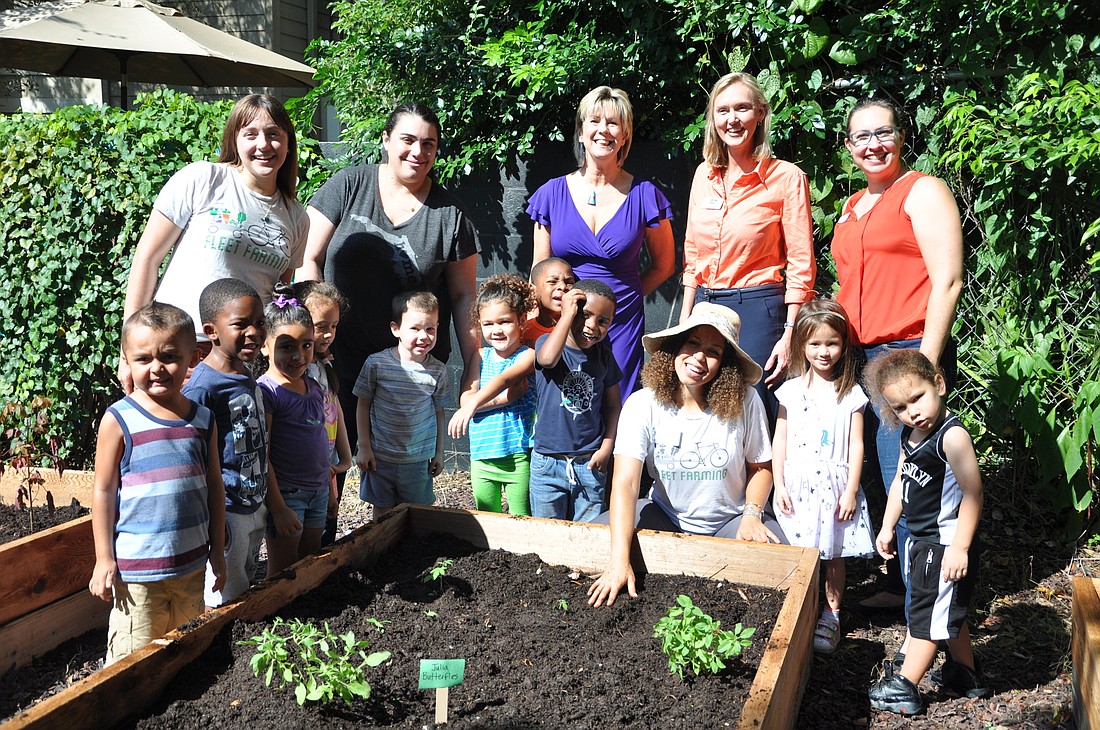- January 21, 2025
-
-
Loading

Loading

A local Winter Park preschool now has a chance to teach children about eating healthy — thanks to some helpful outside support.
The Winter Park Day Nursery saw its gardens turn a new leaf Friday, Sept. 14, as children planted seeds for the first time in the school’s new planter beds.
It’s the result of a project during which three organizations came together to support the Day Nursery. Dr. Phillips Charities provided $5,000 in funding and the Orlando City Foundation teamed up with Fleet Farming to increase the size of the existing planter beds, purchase new soil, install an irrigation system, and buy seeds for the children to plant.
Little ones had the chance to till the soil and plant tomatoes, okra, eggplant, basil and carrots Sept. 14, a couple of weeks after Fleet Farming finished the new beds.
Director of Grants Wendy Oliver, of Dr. Phillips Charities. said she was thrilled to see the project take place — the idea had stemmed from a visit she made to the nursery in March following a grant request for a development program.
“On that tour, I saw that they had these beds without anything in them — they were just waiting to be soiled and grow produce,” Oliver said. “Dr. Phillips had partnered with Orlando City Soccer to put in community gardens in other places. It seemed like a natural fit. It seemed like it would be great partnership to bring in three great organizations in our community to do something good for children.”
Each class at the Winter Park Day Nursery will visit the garden once a week to check on the plants, using them as a resource for classroom activities.
Winter Park Day Nursery Executive Director Ali DeMaria said the garden offers the children numerous benefits.
“When we get to do gardening with our children, it also brings in not only the knowledge of where food comes from … it also exposes them to different types of foods they may not have already had,” DeMaria said. “They can take the food off the vine and see it right there and right then and taste it if they so choose. It’s that sense of, ‘I did this. I grew something. I created something.’ … They’re more likely to try something if they had a part in creating it.”
The garden also will help stock the nursery’s food pantry, DeMaria said. About 70% of the families at the school receive some type of financial assistance from the nursery or the state for their childcare, and so for many of the families that food goes a long way, she said.
“Whatever comes out of the ground in our garden that isn’t tried here or used for activities with the students can go home to families,” DeMaria said. “We put it out front and families can take it. We try to give out fresh produce whenever we have the opportunity to have it for our families. It goes so quickly whenever we have fresh produce — they love it.”
The garden may even spark a lifelong passion in the children, Oliver said.
“One of the things that we had heard when we put in gardens at other schools was students thought that carrots came from a can and green beans were from the grocery store — we wanted to change that,” Oliver said. “They need to be exposed to the true horticulture aspect of it. So this isn’t just for right now, this could plant a seed – no pun intended — for their future careers in growing. We need farmers. We need the understanding of how the earth is important to us and knowing what the dirt does for us and what our earth helps us to do and have that produce.”